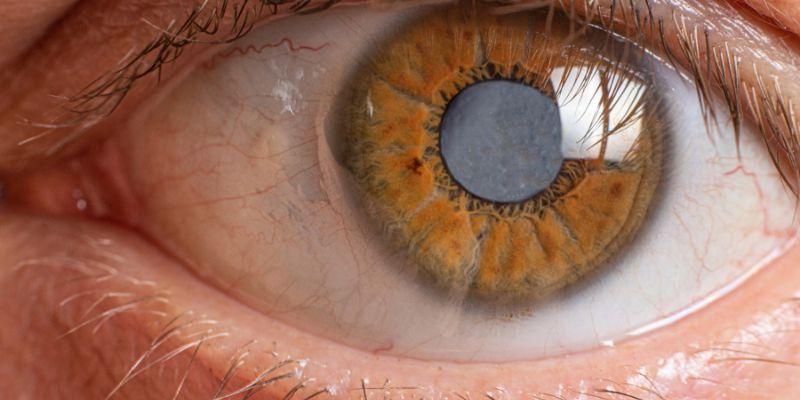Living with Adult ADHD: Identifying 10 Key Symptoms and Seeking Help
ADHD (Attention-Deficit/Hyperactivity Disorder) isn't just a childhood condition; it affects about 4-5% of adults as well. Despite this prevalence, many adults remain undiagnosed, as symptoms can manifest subtly. These include difficulties with focus, impulsive behavior, chronic disorganization, and emotional instability, which can create challenges in both personal and professional settings.
Understanding the signs of adult ADHD is crucial for seeking timely help. If you notice persistent difficulties impacting daily life, consider consulting a healthcare professional for a proper evaluation and potential treatment options. Addressing ADHD can lead to significant improvements in quality of life and overall well-being.
10 Signs and Symptoms of ADHD in Adults
Lets dive into 10 common signs and symptoms of ADHD in adults, and explore when it might be time to seek help.
Difficulty Focusing
Adults with ADHD often face significant challenges with concentration. This difficulty goes beyond simple daydreaming; it manifests as an inability to maintain focus on important tasks. Whether it's a work project or personal commitment, adults may find themselves easily distracted, leading to frustration and incomplete assignments. This ongoing struggle can significantly impact professional and personal life, often resulting in missed deadlines and diminished performance.
Restlessness and Fidgeting

Restlessness is a common symptom of ADHD in adults, often displayed through fidgeting or the need for constant movement. Unlike hyperactive children, adults might not appear overtly energetic but feel an internal urge to move. This restlessness can hinder participation in quiet activities, like reading or watching a movie. Adults may find themselves tapping their feet, squirming in their seats, or frequently shifting their attention, making relaxation and focus difficult.
Chronic Disorganization
Chronic disorganization is a prevalent issue for adults with ADHD, affecting various aspects of life. Many struggle to keep their environments organized, leading to frequent misplacing of items and failure to meet deadlines. Their homes and workspaces may be cluttered, complicating everyday tasks. This lack of organization can create stress and anxiety, as adults feel overwhelmed by their responsibilities. Developing organizational strategies can help mitigate these challenges and improve overall functioning.
Impulsivity
Impulsivity is another key characteristic of adult ADHD, manifesting in various behaviors. Adults may make snap decisions without considering the consequences, interrupt others during conversations, or engage in risky behaviors, such as overspending. This impulsive nature can disrupt both personal and professional relationships, leading to misunderstandings and frustration. Managing impulsivity often requires conscious effort and may involve strategies like mindfulness to improve decision-making and interpersonal interactions.
Forgetfulness
Forgetfulness is a common struggle for adults with ADHD, particularly affecting working memory. They may forget details from conversations, misplace everyday items, or overlook appointments and deadlines. This can lead to feelings of inadequacy and frustration, as their forgetfulness disrupts both personal and professional lives. Creating reminders and organizational systems can help mitigate these challenges, allowing individuals to function more effectively in their daily routines and responsibilities.
Procrastination
Procrastination is a frequent issue faced by adults with ADHD, making it challenging to start and complete tasks. The overwhelming nature of certain responsibilities can lead to avoidance, resulting in last-minute stress and anxiety. Adults may find themselves distracted by less important activities while neglecting crucial ones. Developing structured schedules, breaking tasks into manageable parts, and using motivational strategies can help combat procrastination and promote more productive behaviors.
Mood Swings
Mood swings and emotional dysregulation are common among adults with ADHD, often leading to irritability and frustration. Small annoyances can trigger intense reactions, making it difficult to manage everyday stressors. This emotional turbulence can negatively impact relationships and professional interactions. Many individuals with ADHD experience rapid shifts in mood, leading to challenges in emotional stability. Developing coping strategies and seeking therapy can help manage these emotional fluctuations effectively.
Trouble with Time Management
Adults with ADHD often struggle with time management, resulting in chronic lateness and missed deadlines. They may underestimate the time required for tasks, leading to rushed work and mistakes. Difficulty prioritizing responsibilities adds to the challenge, as distractions frequently derail focus. Implementing time management tools, such as planners and alarms, can help individuals stay organized and improve their ability to meet deadlines and commitments.
Difficulty in Relationships

Maintaining personal and professional relationships can be challenging for adults with ADHD due to symptoms like inattentiveness and impulsivity. These traits can lead to misunderstandings and frustration among friends, family, and coworkers. Emotional outbursts and failure to follow through on promises can strain connections. Open communication and establishing clear expectations can help mitigate these issues, fostering healthier relationships and understanding among those involved.
Low Self-Esteem
Many adults with ADHD struggle with low self-esteem, stemming from ongoing challenges in various life areas. Constant feelings of inadequacy arise from difficulty in meeting expectations at work or personal life, leading to negative self-perception. Individuals often internalize their struggles, leading to a cycle of self-doubt. Seeking support from therapists or support groups can aid in building self-esteem and developing a more positive self-image.
When to Seek Help
Recognizing the symptoms of ADHD is crucial, especially when they disrupt daily life. If you or someone you know experiences persistent challenges, consulting a healthcare professional is essential. Proper diagnosis often requires a comprehensive evaluation, which can reveal ADHD and any co-occurring conditions. Treatment options typically include therapy, medication, and lifestyle modifications tailored to individual needs, allowing those affected to manage symptoms effectively and improve their quality of life.
Conclusion
ADHD in adults often goes undiagnosed because its symptoms can be subtle and may overlap with other conditions. However, recognizing the signswhether its difficulty focusing, impulsivity, or emotional instabilitycan be the first step in seeking help. ADHD is manageable with the right treatment, and adults with ADHD can live productive, fulfilling lives.
If these symptoms resonate with you or disrupt your daily life, consider reaching out to a healthcare professional to explore treatment options. Recognizing ADHD early can lead to better outcomes and improved well-being in the long run.












